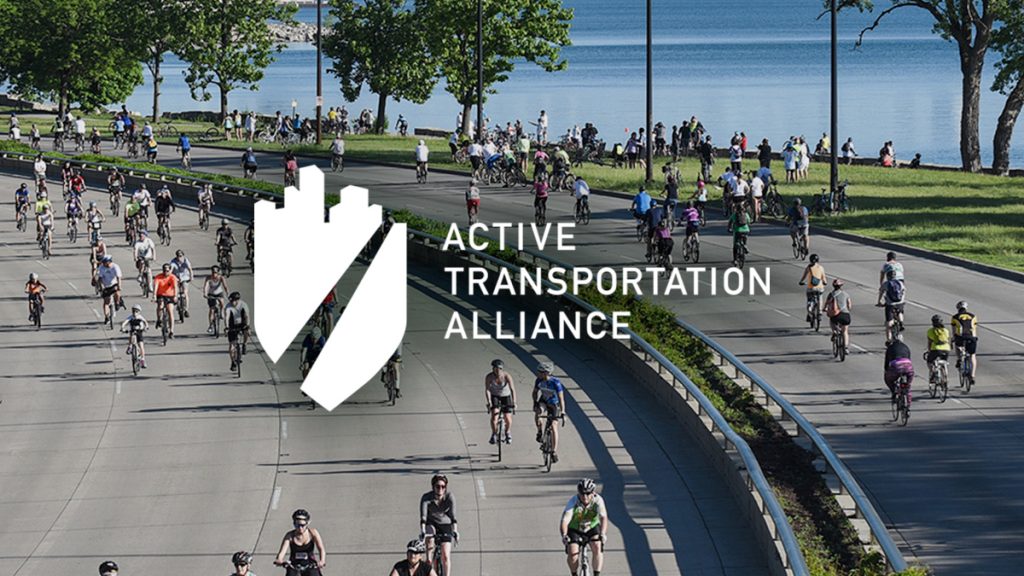This past Thursday, on Chicagoland Car-free Day, the City of Chicago announced the release of a request for proposal to implement public bikeshare. Coincidentally—or perhaps not—the announcement came one day after Capital Bikeshare of Washington, DC celebrated its one-year anniversary.
Launched by Chicago's current Department of Transportation Commissioner Gabe Klein (then of DDOT) under contract with an outside vendor, the iconic red bikes affectionately known in the District as "Cabis" have logged a million trips, making it the most successful bikeshare program in the country.
As noted in recently on the Huffington Post, Capital Bikeshare continues to expand outside the District and is exploring corporate sponsorship for supplying the capital expenditures needed to install the $50,000 docking stations (new stations inside D.C. are covered under CMAQ funding). London's system, Barclay's Cycle Hire, is an example of this solution.
While Huffpost states that the revenue stream generated by fees is not enough to cover the operating costs of the system (about $23,000 per station annually) both Josh Moskowitz of DDOT and Scott Kubly (formerly of DDOT, now of CDOT) assert that the operations and management for Capital Bikeshare is entirely self-sustaining—even profitable for the department.
Running public bikeshare in the black is of course a reasonable goal, but it should not be seen as an obstacle to implementing, maintaining and expanding systems. This perspective is short-term and reactionary because it is almost always championed by those who wish to limit such systems on principle and ignores the long-term cost savings to taxpayers.
The gamut of possible savings and economic benefits to the public was explored at length in Elly Blue's series of articles, "Bikonomics," on Grist.com this summer.
Air quality and particulate pollution alone cost United States taxpayers as much as $90 billion a year. Our car-centric lifestyle has played a major role in the increase of diabetes. One in 3 Americans born after the year 2000 will be afflicted with Type 2 Diabetes—which costs an estimated $116 billion per year.
In all, the indirect costs—those not paid for by the driver (coupled to gasoline, maintenance, parking, etc) and deferred “downstream” to the public—cost us hundreds of billions annually.
Those costs, including impacts to public space, real estate values and congestion are estimated at 39 cents per mile driven according to the website calculator True Cost of Driving. At 3 trillion miles driven in the US last year, that equals $1.17 trillion—about one third of the entire United States budget for 2011.
This alone justifies running any public transportation option at a deficit, especially bike share. Fiscal sustainability should be welcomed, but as a side-benefit. The number one metric in determining success should be ridership, e.g. vehicle miles prevented.
One million rides in Cabi’s first year have accrued nearly 890,000 miles. At 39 cents per potential vehicle miles prevented, Capital Bikeshare gave DC taxpayers a maximum net savings of almost $350,000 in its first year.
DC’s phenomenal success in bikeshare has elevated the offering to priority status with the planners of cities like New York City and now Chicago. It has also provided a valuable example of a public-private partnership in implementing a unified system across multiple jurisdictions, such as neighboring counties in Virginia and Maryland.
Last week, New York City announced it had signed a contract to implement a city-wide public system of 10,000 bikes and 600 stations.
Chicago’s RFP calls for an initial installation of 3,000 bikes and 300 stations, with another 2,000 bikes and 200 station by the end of Summer 2012. Read more on Chicago’s bikeshare RFP at Grid Chicago.

